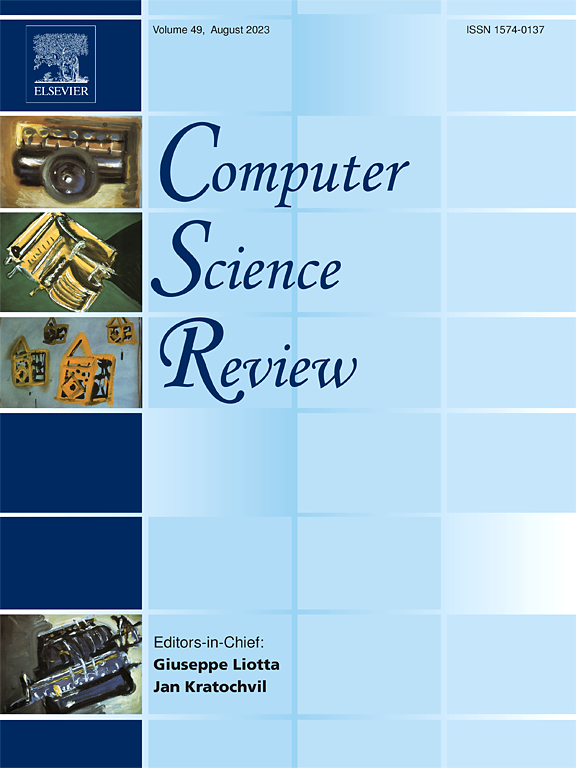WSN 中基于人工智能的集群路由协议:模糊启发式、元启发式和机器学习模型概览
IF 12.7
1区 计算机科学
Q1 COMPUTER SCIENCE, INFORMATION SYSTEMS
引用次数: 0
摘要
基于集群的路由选择技术已成为无线传感器网络(WSN)中数据流管理的关键解决方案。随着这些网络对高效数据管理的需求日益增长,了解和改进这些技术比以往任何时候都更加重要。本调查报告评估了 2021 年至 2024 年发布的最新基于集群的路由协议,重点关注 WSN 中的人工智能驱动方法,包括模糊启发式、元启发式和机器学习模型及其组合。每种方法都通过对基于解决方案和基于网络配置的因素进行深入分析来进行评估。基于解决方案的参数包括性能模式、选择策略、优化目标、建模技术以及影响每种方法整体效果的关键因素。此外,网络配置分析涉及拓扑类型、通信架构、网络规模、性能指标和使用的模拟器。这种全面的分析揭示了每种方法的能力和局限性的宝贵见解。通过找出不足之处并强调需要改进的领域,本调查旨在指导未来的研究,为 WSN 开发更高效的基于集群的路由技术。这些融合了智能性能特征的方法将能够很好地满足智能时代日益增长的需求。本文章由计算机程序翻译,如有差异,请以英文原文为准。
AI-driven cluster-based routing protocols in WSNs: A survey of fuzzy heuristics, metaheuristics, and machine learning models
Cluster-based routing techniques have become a key solution for managing data flow in Wireless Sensor Networks (WSNs), which often struggle with limited resources and dynamic network conditions. With the growing need for efficient data management in these networks, it is more important than ever to understand and enhance these techniques. This survey evaluates recent cluster-based routing protocols released from 2021 to 2024, focusing on the AI-driven approaches in WSNs including fuzzy heuristics, metaheuristics, and machine learning models, along with their combinations. Each approach is evaluated through a deep analysis of solution-based and network configuration-based factors. Solution-based parameters include performance mode, selection strategies, optimization objectives, modeling techniques, and key factors affecting the overall effectiveness of each approach. Additionally, network configuration analysis deals with the type of topology, communication architecture, network scale, performance metrics, and simulators used. This comprehensive analysis unveils valuable insights into the capabilities and limitations of each method. By identifying shortcomings and highlighting areas for improvement, this survey aims to guide future research towards the development of more efficient cluster-based routing techniques for WSNs. These methods, incorporating intelligent performance characteristics, will be well-equipped to address the ever-growing demands of the intelligent era.
求助全文
通过发布文献求助,成功后即可免费获取论文全文。
去求助
来源期刊

Computer Science Review
Computer Science-General Computer Science
CiteScore
32.70
自引率
0.00%
发文量
26
审稿时长
51 days
期刊介绍:
Computer Science Review, a publication dedicated to research surveys and expository overviews of open problems in computer science, targets a broad audience within the field seeking comprehensive insights into the latest developments. The journal welcomes articles from various fields as long as their content impacts the advancement of computer science. In particular, articles that review the application of well-known Computer Science methods to other areas are in scope only if these articles advance the fundamental understanding of those methods.
 求助内容:
求助内容: 应助结果提醒方式:
应助结果提醒方式:


